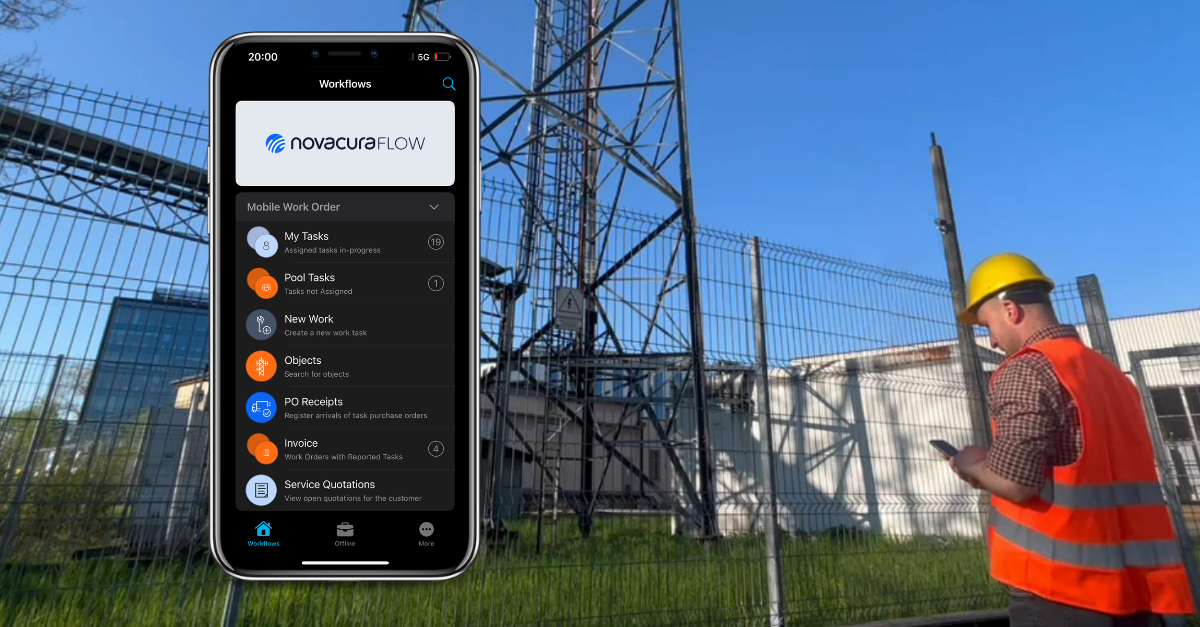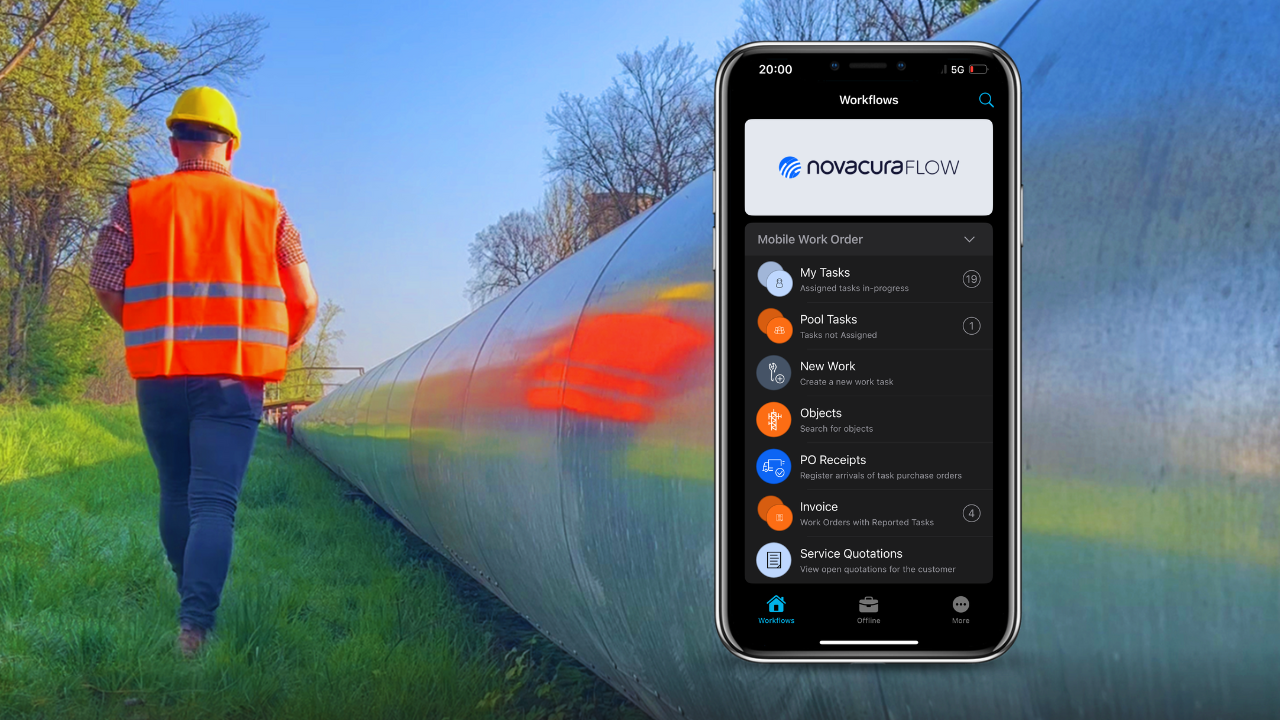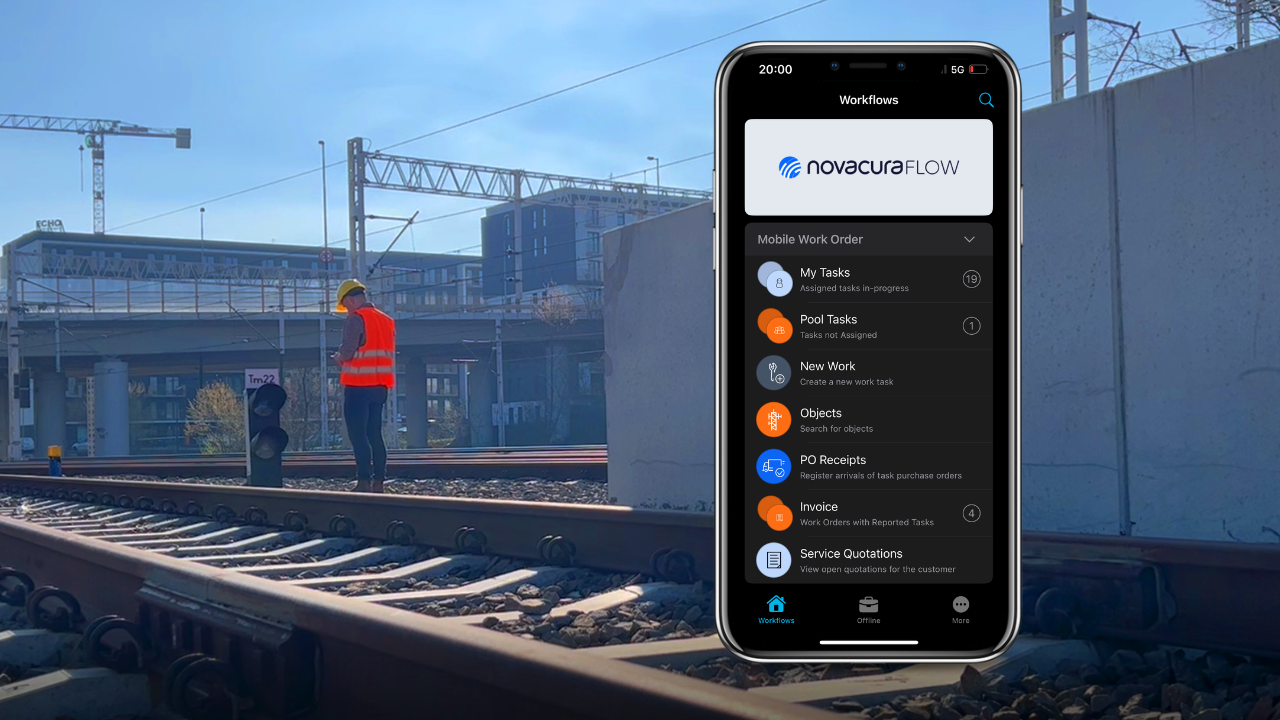
Field service and maintenance management software should provide on-site management and technical services for businesses in a variety of industries, including manufacturing facilities, commercial and government buildings, hospitals, railroad infrastructure, and even large sports complexes, which require extensive security compliance control to guarantee thousands of visitors complete safety during sporting events.
Field services and maintenance should include a strategic planning function, which is very difficult to accomplish without proper instruments for extensive management of operations at various locations across the country. Companies such as SweMaint and Holmen, whose successful operations are closely dependent on well-managed field and maintenance services, are just one example. These companies operate in manufacturing, maintenance, and field service, providing flexible and consistent support for locations and equipment.
Despite the different areas of field service and maintenance operations, these companies require cost-saving results when performing maintenance services, as well as more efficient labor management. Obviously, these companies wanted to make the right choice on FSM software to avoid poor planning and organization that lead to poor maintenance management and backlogs. Buying FSM software can be pretty difficult if the software does not offer specific capabilities and features, giving companies visible benefits in the long run.
What are the features of field service software?
FSM software provides control over critical elements in industrial operations. Therefore, in practical maintenance, it is important to provide its users with software that includes certain functions and allows users to develop a maintenance management framework with remote control of industrial equipment and installations.
Here are several important features of FSM software:
- Work order management – FSM should perform as a job scheduling software where all job progress is visible in the system and can be easily tracked and controlled by planners providing the organization with real-time visibility software functions.
- Constant data collection – information acquisition and constant data exchange require FSM to process as analytical data software, where staff can get analytical information at any time to prepare better forecasts.
- Personnel Management – to perform all operations most efficiently, FSM should support working hour assignments and act simply as workforce management software, making scheduling easier even in unpredictable cases like personnel shortages.
- Business Process Management – high workloads in various industries require simplifying the most complex operations in an organization, so FSM should provide business automation software capabilities where processes can be simplified with a better user interface, etc.
- Deep ERP integration – FSM software can maintain higher performance when it has integration software capabilities, allowing it to connect existing systems in the organization and integrate with another ERP system and implement that way the ERP evergreen strategy.
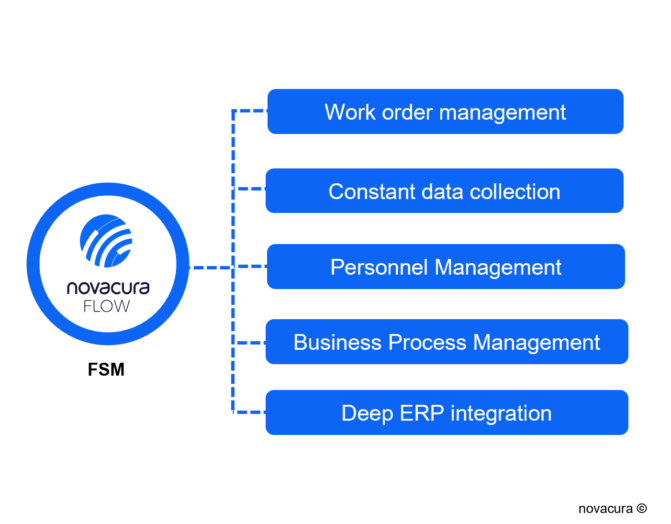
Who are the key players in field service management?
The features above are absolute standards for the successful procurement of maintenance software. Companies that want to invest in process optimization should also consider performance metrics that allow them to collect relevant data from the entire operation, which can include maintenance performance metrics or financial data with an assessment of annual maintenance expenses and much more.
Key players who provide FSM software can ensure these capabilities for their users:
-
Mobility – FSM software should provide a wide range of mobile applications with variable features for different operations that help support business scalability when it comes to the hundreds of checkpoints dedicated to inspection.
-
Offline mode – FSM software should enable employees to work in an area with limited access to the network with mobile app functionalities used when handling inspections and later updating all necessary data in the system.
-
Free customization – FSM software should meet all business requirements for operation and maintenance upfront but also give its users the later ability to modify the system and build additional mobile applications, add system transactions, and more flexible control over the entire BPM to be more.
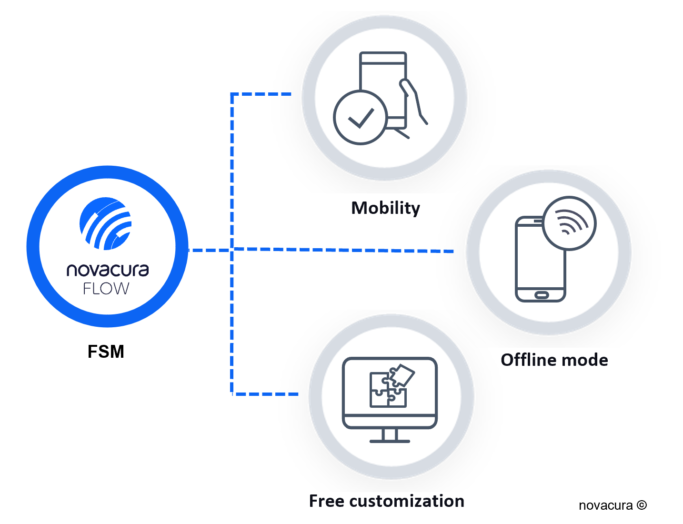
What is a field service app?
Field management and maintenance involves operations dedicated to working in remote locations; therefore, field workers should have access to mobile devices equipped with apps. Mobility is crucial when choosing FSM software; therefore the company should select a system that allows mobile applications for maintenance services to perform the following operations:
- Remote data collection – mobile apps should have built-in functions such as checklists and tool/equipment uptime review to perform inspections and help collect data on equipment and remote industrial installations that present users with all measurements and show history in graph form.
- Work orders management – mobile apps should give a view of the Work Assignment Log, detailed steps for scheduled service and maintenance (visual instructions, etc.), and allow users to request remote assistance when needed.
- Deep ERP integration – mobile apps should be integrated with ERP systems such as IFS, Oracle, Infor, and SAP, which allow for continuous data exchange with the central system.
- Inventory management – mobile apps should allow for the creation, deletion, and updating of material requisitions and the issuance of inventory items automatically or manually.
- User-friendly interface – mobile applications should have an easy-to-use user interface for field services to reduce errors and speed up maintenance operations.
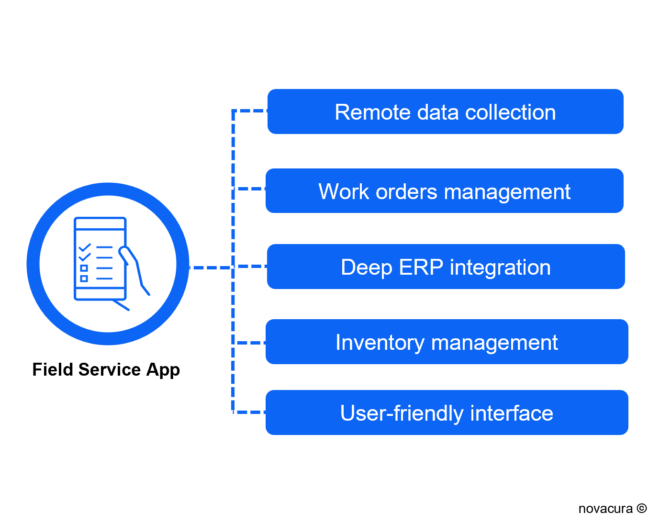
How to create a field service mobile app?
Only a small number of FSM software provide the ability to independently create mobile applications for users. Since operations in an FSM business environment can be very complex, it is important to provide the enterprise with the ability to create and modify business applications as a function in FSM software.
Novacura Flow is a software that enables the development of FSM mobile applications. The software is supported by low-code technology, which allows users without high programming skills to create mobile applications in the Novacura Flow platform. The FSM applications are built on top of the ERP system as an additional layer that enhances business capabilities with unlimited system transactions (which previously may not have been available in ERP).
The example presented above explains how users can use Novacura Flow, with access to Novacura Flow Studio, environment for developing applications for internal operational needs in warehouses.
Mobile applications with Novacura Flow give users the following benefits:
- Deep ERP integration – Novacura Flow can easily integrate with most ERP systems such as IFS, SAP, Oracle, and Infor M3, allowing the user to exchange data with the central system without negatively impacting existing processes.
- Free customization – Novacura Flow platform users can build their own mobile applications with modified interfaces that improve the user experience and can be customized to meet specific process requirements.
- Evergreen ERP – Novacura Flow allows users to make operational changes to the system without costly system modifications or adding additional transactions to the system.
- Cost-effective – Novacura Flow does not require users to have high programming skills, so the company can get its own capabilities to freely modify business operations without costly external support.
- FSM applications – users of the Novacura Flow platform can build an unlimited number of mobile and desktop applications dedicated to field service and maintenance with options dedicated to the specifics of their operations.
Mobile apps dedicated to FSM can be built in minutes and deployed immediately in work environments for field service and maintenance. App’s are connected with ERP. To make the development process easier, Novacura makes ready-made applications available for download from its Marketplace.
Summary
Novacura provides long-term benefits in its FSM solutions that can meet business requirements for field and maintenance services for the inspection of equipment, industrial installations, and much more. If you are looking for a remote and field inspection reporting application that can be connected to your existing systems, we can provide your company with the right capabilities.
Customer case
Learn more about FSM implementation from Novacura in SweMaint, leading company that operates in railway industry.

Novacura has been operating for nearly 20 years in global markets in the US, Europe, and Australia. We provide customized software based on low-code technology, allowing companies to develop their industrial applications. Companies using our software consider it a cost-effective, long-term investment with the prospect of a relatively high return on investment (ROI). Contact us today to learn more about your company’s benefits, including those that will help you gain more customers and grow your business sustainably. Learn more about FSM from Novacura here.





